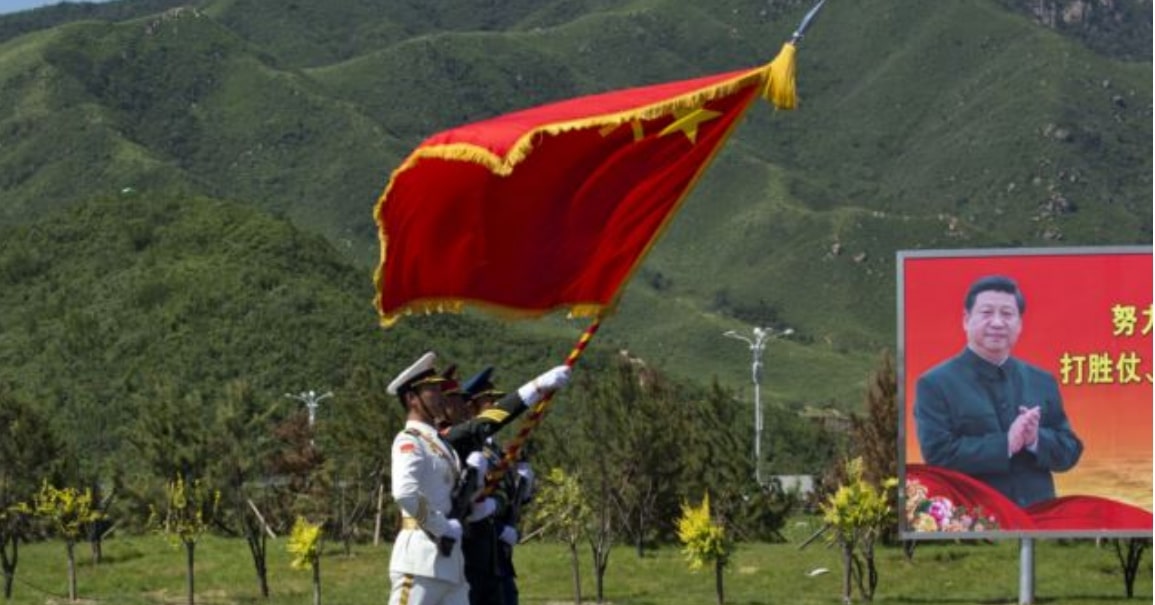 |
| Xi Jinping: Consolidation of power (photo by By 美国之音) |
In an article published on Taiwan's website Apple Daily, Wang Dan casts away all hopes that the People's Republic of China might eventually move towards democracy. On the contrary. Under the leadership of Xi Jinping, he writes, the Communist Party is undergoing a process of "Fascistisation" (中共的法西斯化).
Wang Dan is a prominent Chinese political thinker and activist, but one whose fate has been tragically shaped by Communist media censorship. His name has been erased from mainland China's collective memory and history, just like the political upheaval of which he was a leader in 1989. During that decade, in which China's authorities cautiously allowed an unprecedented degree of freedom, Wang Dan was one of the organisers of the "Democratic Salon", a study group and discussion platform on the campus of Beijing University. Wang Dan was a twenty-year-old student who, like many others of his generation, tried to change the face of the Communist state by political action from the bottom. On June 4th 1989, his dreams abruptly ended when the People's Liberation Army put down what the state leadership had called a "counterrevolution".
Wang Dan was arrested on July 2, 1989, and remained in custody until his trial began in 1991. He was sentenced to four years in prison on charges of "counterrevolutionary propaganda and incitement". He was taken to Qincheng, a maximum-security prison in Beijing's outskirts. Although he was released in 1993, he was arrested again two years later and in 1996 he was sentenced to eleven years in prison on charges of "subverting state power", the exact same crime of which Wang Dan's friend Liu Xiaobo was later accused (see Tiananmen Exiles: Voices of the Struggle for Democracy in China, pp. 114-115).
According to Wang Dan, there were too many people who believed China was on the right track. They thought that the days of the personality cult (個人崇拜). We might add: even keen China observers such as Richard McGregor made the mistake of believing that one-man politics were no longer possible in China, and that the Communist state was governed by a collective leadership.
However, Xi Jinping has proved the optimists wrong. The last act of Xi's new personality cult was played on February 19, when he visited mainland China's biggest state-owned news outlets and ordered them to strictly follow the Party's leadership and focus on "positive reporting".
Two things are strange about Xi's visit, writes Wang Dan.
First, China Central Television [CCTV] welcomed Xi Jinping with a large banner on which were written the words: 'CCTV is a child of the Party and pledges absolute loyalty [央視姓黨,絕對忠誠]'. Second, the People's Daily published on its front page an editorial in large red letters summarising Xi Jinping's speech. These two events are so disgusting they make one want to throw up. They reveal that the personality cult is gaining ground in China, and one feels that time is moving backwards.
In his article Wang Dan remembers a conference he attended in Taiwan in 2008. There he spoke about the possibility of the Fascistisation of the Communist Party. However, Taiwan's intellectuals didn't take him seriously. "Their faces were expressionless", he writes, "but I felt they disagreed. They might think that I hate the Communist Party because they persecuted me, so my judgement could not be rational, objective and impartial".
He also recalls the diffident reactions of students who attended his lectures in Taiwan
[W]henever I said that the possibility of a new Cultural Revolution in China exists, almost all Taiwanese students kept a respectful attitute, but I could feel they disagreed. Not to mention those exchange students from mainland China born in the 1990s. They basically thought I just wanted to 'smear' the Chinese government.
There can be no doubt that since Xi Jinping assumed the leadership in 2012, the Communist Party has been pursuing a more aggressive, nationalistic and authoritarian policy. No one should make the mistake of misunderstanding the real nature of the Communist government.
Comments
Post a Comment